
Ghosts of war linger over South Sudan’s Unity State
By Okech Francis
As the sun sets over South Sudan’s Bentiu town, a dark silhouette frame of the “Kalibalek” mosque protrudes into the sky.
Beautifully poised against the setting sun, and yet the mosque holds memories of the war that are heart wrenching.
In a single night in April 2014, over 400 people, traders and women, children and the elderly seeking refuge from heavy fighting in the town were followed into the mosque and shot dead one by one.
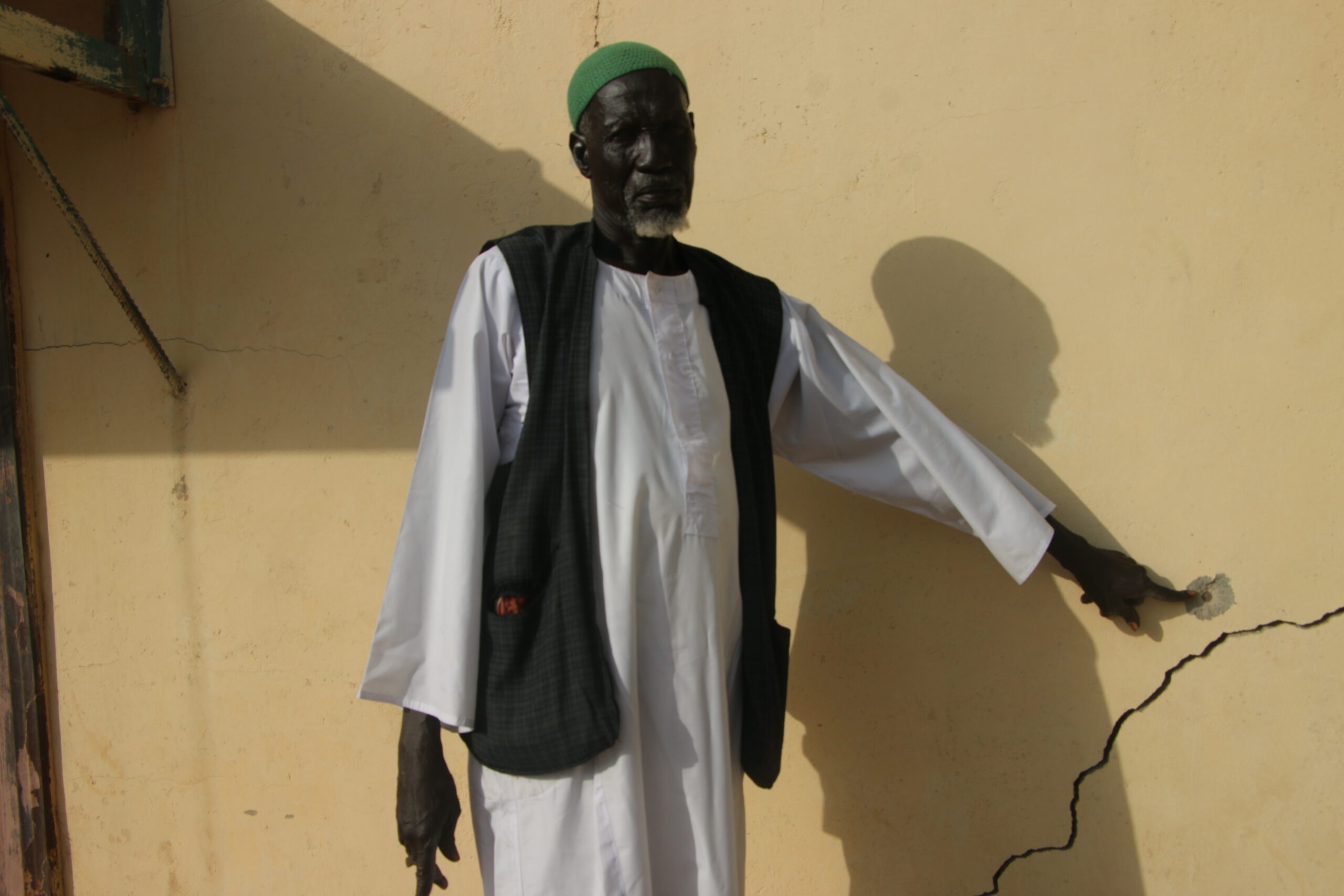
“That was the most horrendous act I have seen in my life,” the Imam at the mosque, Abdallah Kuol Gatkuoth told Juba Echo in an interview in Bentiu.
The 80-year-old survived that massacre by a whisker, with the attackers entering the mosque barely three minutes after he walked out of the compound using a backdoor.
That night, Bentiu was under heavy attack and Gatkuoth sneaked back home on the outskirt, from where he fled into the bushes.
The majority of those killed were Sudanese traders, murdered because the rebel forces associated them with government sympathisers.
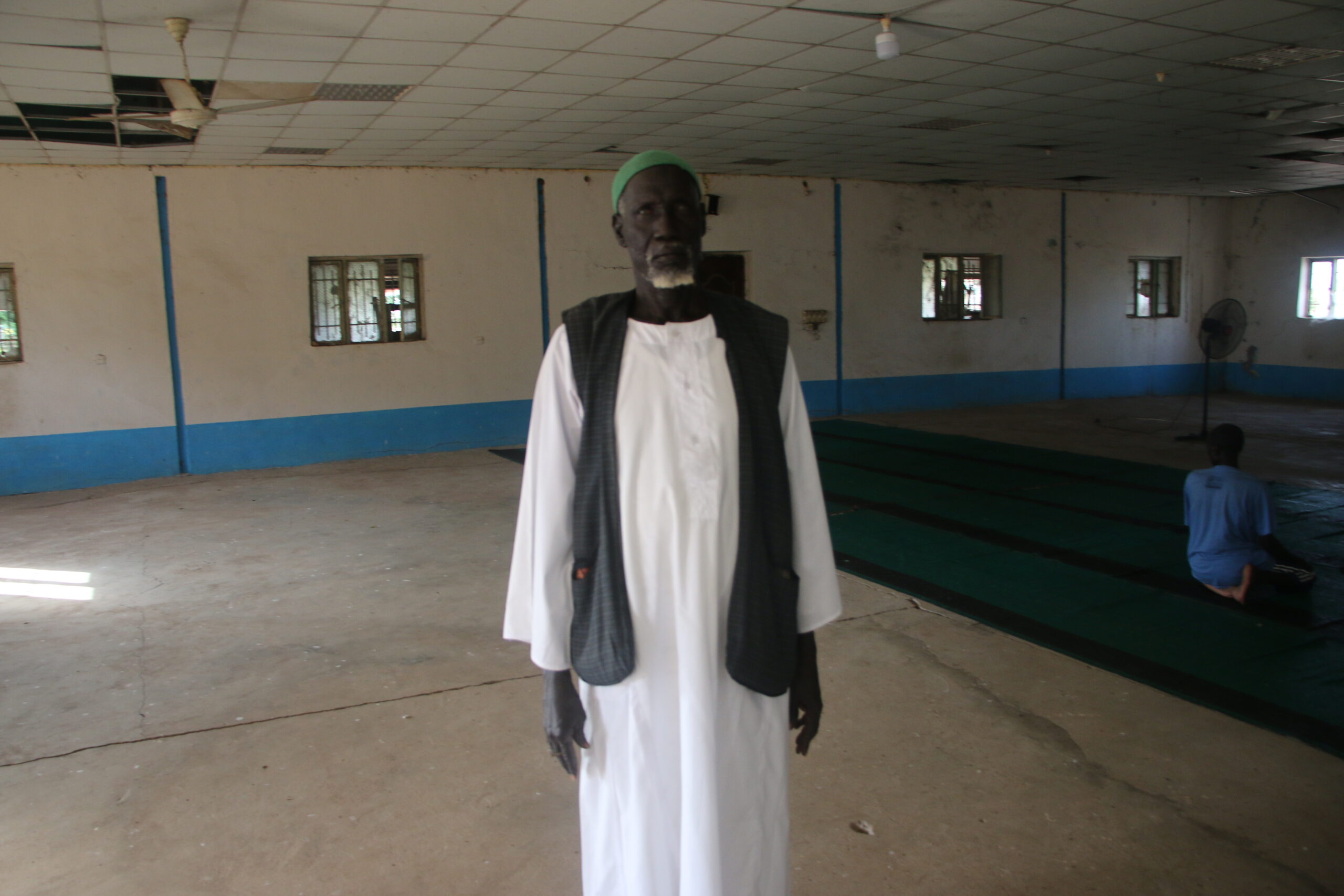
The town has also witnessed the massacre of people at the catholic church and the state hospital.
Seven years later, the hallmarks of the war still hang over Bentiu as well as other major towns across the country.
Malakal in Upper Nile and Bor in Jonglei are other towns which were also brutally destroyed and hundreds of people killed during the war.
Created out of Upper Nile, Unity State was meant as a symbol of unity of the people of former Sudan, regardless of tribes.
After independence, and with the crisis which began in December 2013, that unity fell apart and the State was pounded by every fighter until famine struck as it gradually became the epicentre of the conflict.
All fighting groups used the capture of the capital Bentiu as a show of military might.
Looting and plunder were used as wage for capture of the town.
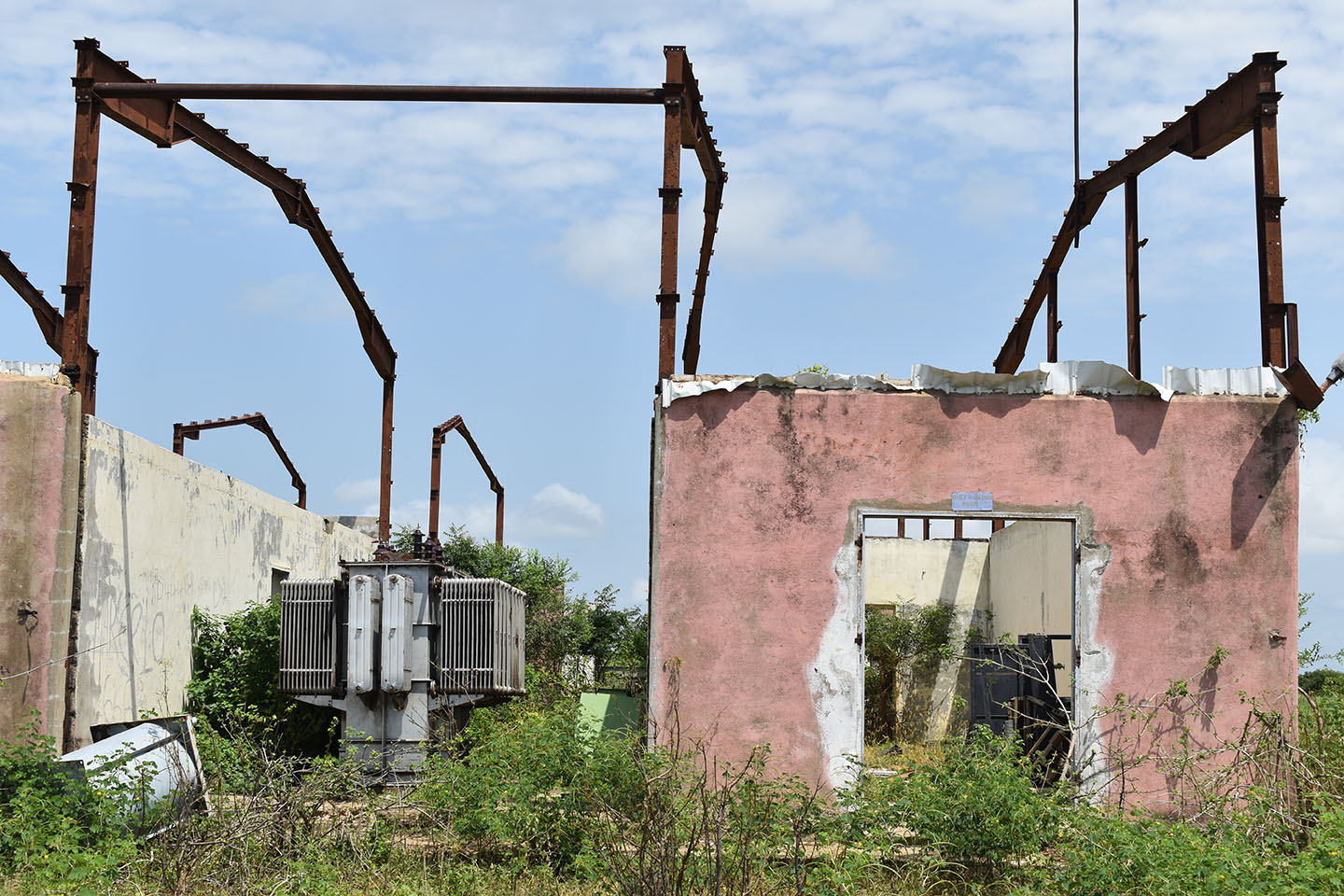
Torture and death were the order, in residential areas, on the streets, in churches and hospital.
Vibrant projects including electricity and piped water now remain in history.
After the rebel carnage that night, government forces and Sudanese mercenaries overran the town-another ordeal of madness for the people.
As the crisis unfolded, Gatkuoth looked on as he lost seven shops in Bentiu, 160 heads of cattle to fighters and six children who joined rebellion.
The Imam is however quick to forgive the leaders for their “senseless” war.
“They must know this was solely their mistake and not that of the communities killing one another,” Gatkuoth said.
“I am ready to forgive them if they accept not to repeat their mistakes.”
Now the crisis has ended but rebuilding an area plundered and destroyed by all sides in the war is proving much more than the former fighters now turned peace partners can do.
Key infrastructures in Bentiu are grounded without immediate plans to revamp them. Everywhere across the State, the ghosts of war still linger.
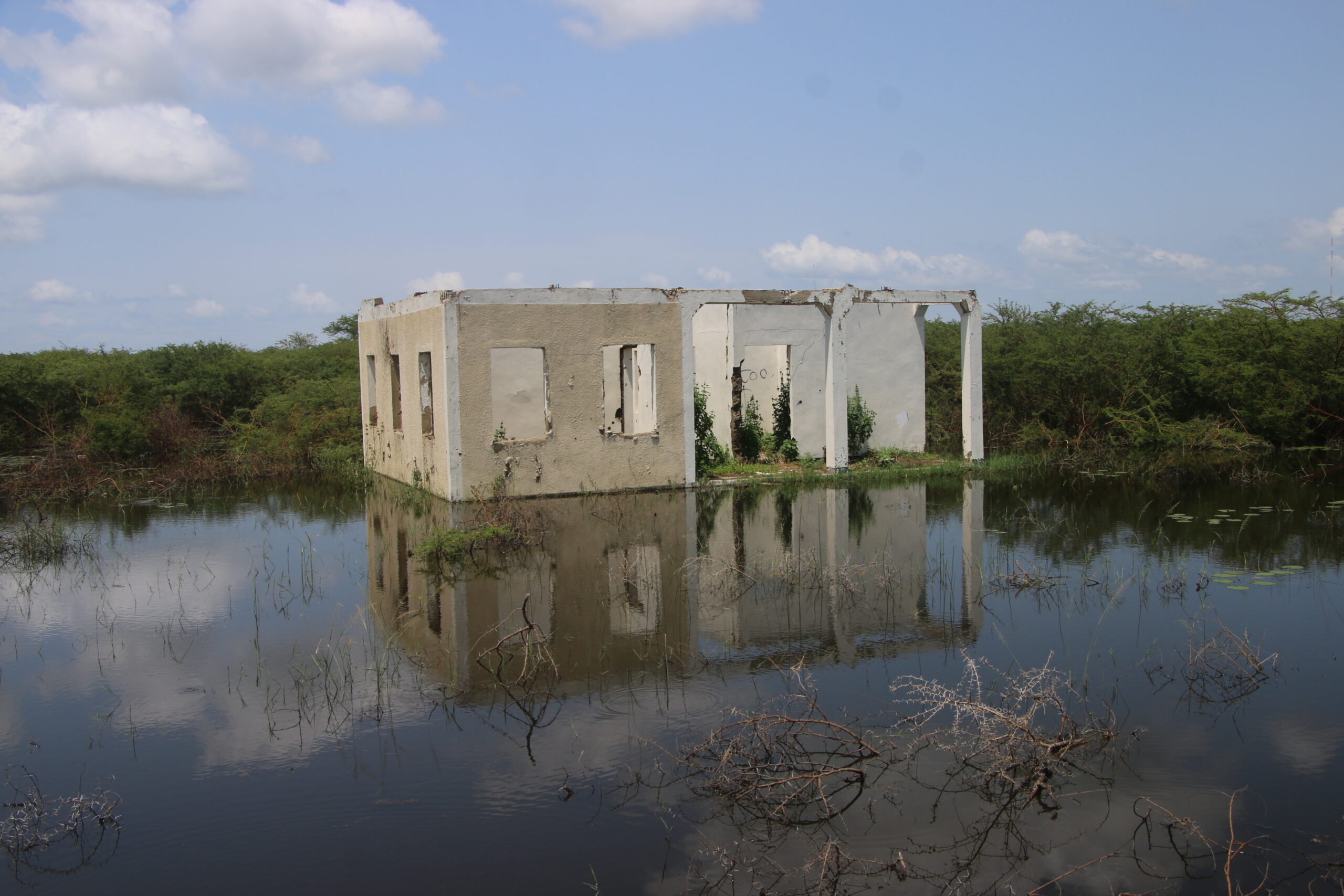
Shops in the capital are made of plastic and iron sheeting with permanent structures hard to come by.
Floods have worsened the situation for people who simply wanted to forget the crisis and begin rebuilding their livelihoods.
Hunger, diseases and uncertainty keeps at bay as they are once again uprooted from their homes taken over by flood waters.
Across the State, “it is very difficult now to deliver services because all health facilities are flooded and all drugs are withdrawn back to Bentiu,” the Director General in the Ministry of Health, Elijah Makuei Guol told Juba Echo in Bentiu.
Rubkhona Secondary school is a reminder of disaster.
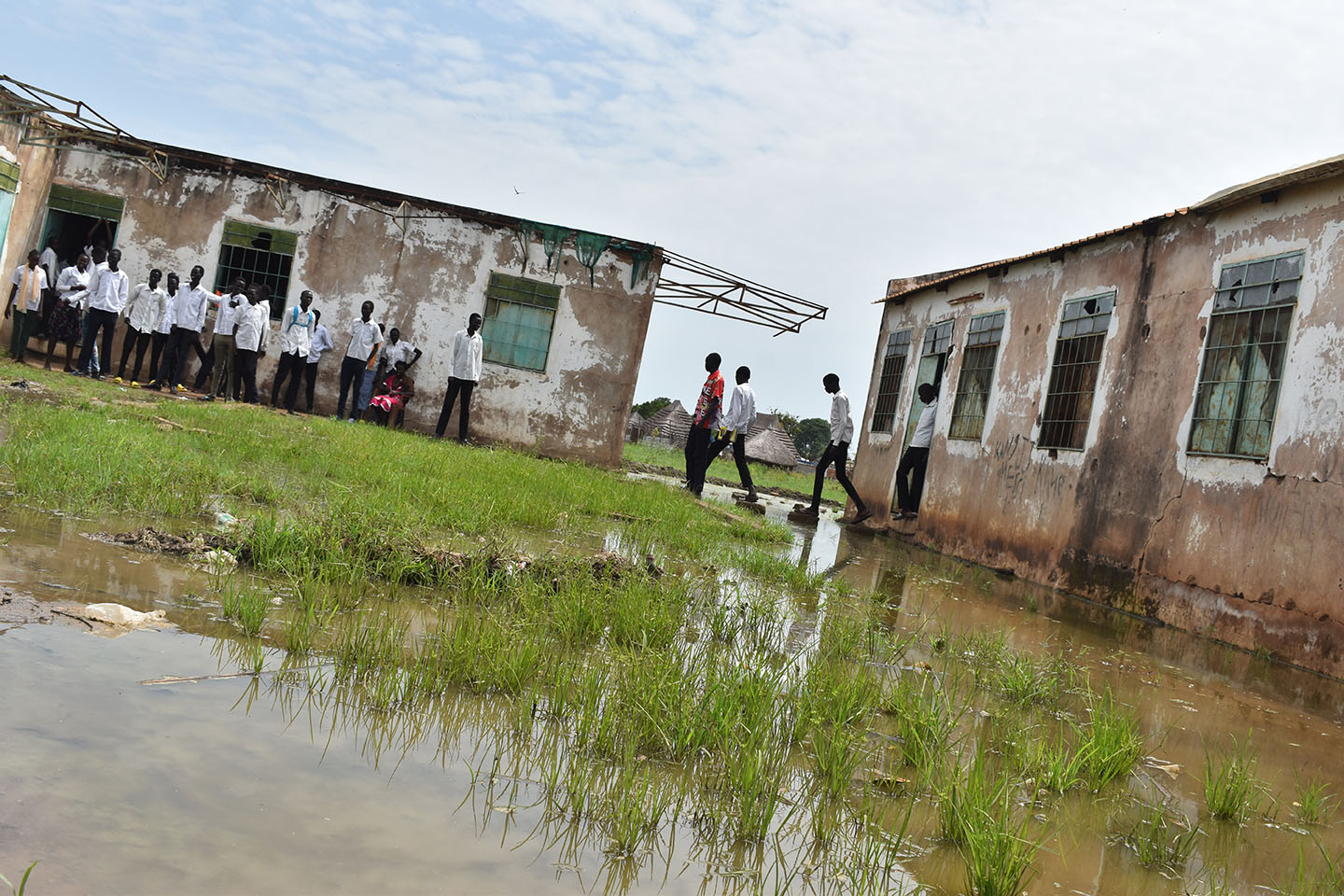
The facility was fully plundered and now the 200 students must study in shift to use whatever is available.
“We have no benches, textbooks and now the classes study half day each,” Nhial Mairop, a senior two student said.
“Senior 1 to 3 come to school at 1.00 pm and senior 4 from the morning,” Mairop said.
Other schools like Liech Academy is completely plundered and left to the flood waters.
Across the state, health facilities, schools and government installations are all destroyed, and with the floods, the state government is only protecting the facilities in Bentiu, governor Joseph Manytuil said in Bentiu.
Currently six counties out of seven are under water and no development can take place in them, Manytuil said.
“Villages are lost and even the oilfields are under threat as well,” he said.
“Most of the roads leading to the wells are cut off but we are trying out level best to reach them.”



































